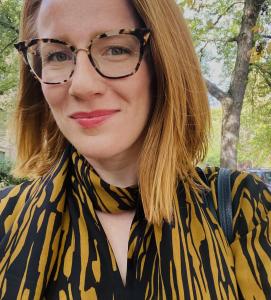Raffaella Taylor-Seymour

My research aims to understand the role religious beliefs and practices play in negotiating historical and contemporary social change, and how they develop and adapt in response. My research focuses on Africa — specifically Zimbabwe — and the entanglement of multiple religious traditions over the past two hundred years.
Since my first year at Chicago, I’ve found the Divinity School a great second home and enjoyed being among those working on the anthropology and history of religion, as well as other branches of religious studies. I’m also very committed to the Marty Center’s emphasis on engagement with the world beyond the academy, and aspire in the long term to write for general as well as specialist audiences. I was excited to discover the Marty Center Junior Fellows program, since it will give me a chance to address my work to religious studies audiences more directly and to be among a diverse group of people coming at religious studies questions from various angles.

